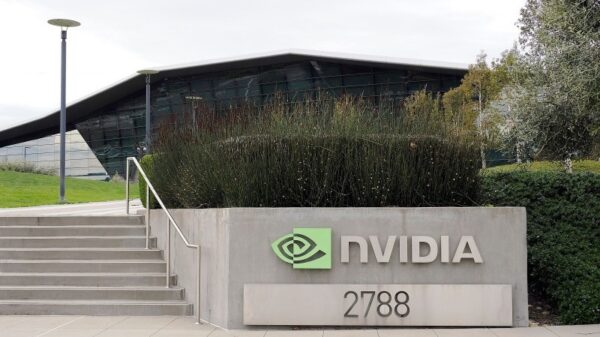India’s burgeoning AI landscape is increasingly attracting global attention, with approximately 30% of Indian companies advancing beyond pilot-phase AI initiatives. This figure surpasses the global average of 26%, indicating India’s readiness for large-scale AI deployment.
The government’s capacity-first approach has been pivotal in this growth, promoting innovation through capacity building, open collaboration, and a regulatory framework that encourages participation from both local and global entities.
Initiatives like the IndiaAI Mission are designed to empower innovators by minimizing regulatory barriers that could hinder the progress of Indian startups. This initiative underscores a commitment to fostering a conducive environment for AI development.
Capacity Building and Infrastructure Development
To maintain this momentum, India must continue prioritizing capacity building. This focus spans various domains, including data protection, competition policy, and intellectual property, ensuring that innovation flourishes and enterprises are empowered. By establishing a strong foundation in capacity creation, India aims to position itself as a leader in the global AI landscape.
The IndiaAI Mission’s budget of ₹10,372 crore exemplifies this commitment, focusing on developing advanced infrastructure, supporting startups, and promoting the ethical and inclusive use of AI. Plans to deploy 38,000 GPUs and establish high-performance computing facilities will equip Indian researchers and entrepreneurs with the necessary tools for large-scale innovation. Additionally, the creation of IndiaAI datasets and innovation hubs will enhance accessibility for startups, academia, and small businesses.
Private sector involvement is vital in amplifying these efforts. Major technology firms have expressed their confidence in India’s AI potential through significant investments. For instance, Google has proposed a $15 billion investment to create an AI hub in Visakhapatnam. Other notable collaborations include a Meta-Reliance joint venture focused on AI services, and partnerships between Nvidia and firms like Reliance, Tata, and Infosys to establish AI supercomputing infrastructure. Additionally, Microsoft has committed $3 billion to expand its AI and cloud infrastructure.
Startups such as Sarvam AI, which raised $41 million in 2023 for developing Indic-language models, further illustrate the rise of indigenous capabilities. Together, these initiatives are forming a self-reinforcing ecosystem that fosters innovation, provides access to high-performance computing, and facilitates global scalability.
Regulatory Landscape and Governance
While some regions have opted for early-stage regulation of AI, India’s strategy remains measured, consultative, and capacity-driven. The EU’s **AI Act**, although groundbreaking, has faced criticism for its complex classification system and potential compliance burdens. In contrast, India’s approach prioritizes enablement over enforcement, focusing on infrastructure, skills, and collaboration.
The government has initiated partnerships with startups, infrastructure providers, and technology companies to strengthen the AI ecosystem. This reflects a belief that regulation should evolve in tandem with capability, rather than precede it.
India’s emphasis on capacity development is attracting global investments and positioning the country as a trusted technology hub. Recent draft guidelines for AI outlined by the Ministry of Electronics and Information Technology aim to strike a balance between regulatory guardrails and the freedom to innovate. Initiatives such as the Niti Aayog’s Responsible AI framework and the Reserve Bank of India’s Free-AI framework showcase India’s commitment to addressing governance challenges in the AI ecosystem.
This enabling governance framework sets a global standard for balancing growth and governance, aiming to create a competitive and resilient AI ecosystem. It mirrors the success of India’s digital public infrastructure model, where state-led platforms like UPI, ONDC, and DigiLocker have enabled innovation through open and interoperable standards.
India’s ‘open rails’ strategy in AI can serve as a global template for other countries seeking to foster an environment conducive to startups while stimulating private investment across the AI value chain.
India’s approach reinforces its position as a trusted AI partner for both developing countries and advanced economies. Collaborations such as the Indo-US Initiative on Critical and Emerging Technology (iCET) and the UK-India AI cooperation under Vision 2035 illustrate India’s commitment to capacity building beyond its borders.
In conclusion, India’s capacity-first approach is instilling confidence among investors and innovators, encouraging both local and foreign AI companies to collaborate with the government and civil society in shaping the future of AI in India. With sustained investment, visionary leadership, and a collaborative spirit, India is poised to cultivate an AI ecosystem that prioritizes innovation, inclusion, and long-term competitiveness.
The author is a member of the Rajya Sabha and of the Parliamentary committee on communications and information technology.
See also Google Aims to Double AI Serving Capacity Every Six Months Amid Rising Demand
Google Aims to Double AI Serving Capacity Every Six Months Amid Rising Demand PayPal Stock Soars 4.3% on AI-Driven Commerce Partnership Amid Fed Rate Cut Hopes
PayPal Stock Soars 4.3% on AI-Driven Commerce Partnership Amid Fed Rate Cut Hopes Microsoft Replaces BSOD with Black Screen, Launches Auto-Hide Feature for Public Displays
Microsoft Replaces BSOD with Black Screen, Launches Auto-Hide Feature for Public Displays AI Revolutionizes Global Communication: Flitto’s Simon Lee Highlights Urgent Industry Shifts
AI Revolutionizes Global Communication: Flitto’s Simon Lee Highlights Urgent Industry Shifts France Investigates Elon Musk’s Grok AI for Holocaust Denial Amid Growing Controversy
France Investigates Elon Musk’s Grok AI for Holocaust Denial Amid Growing Controversy






























































